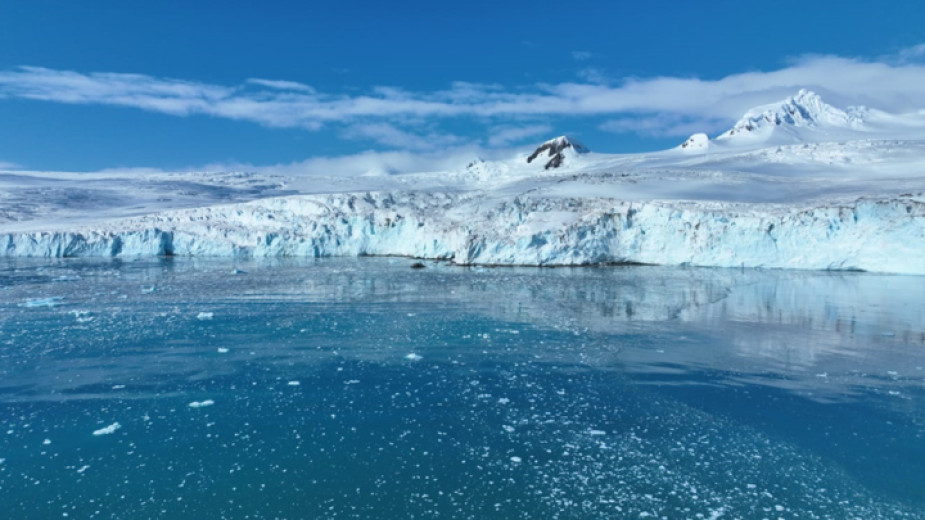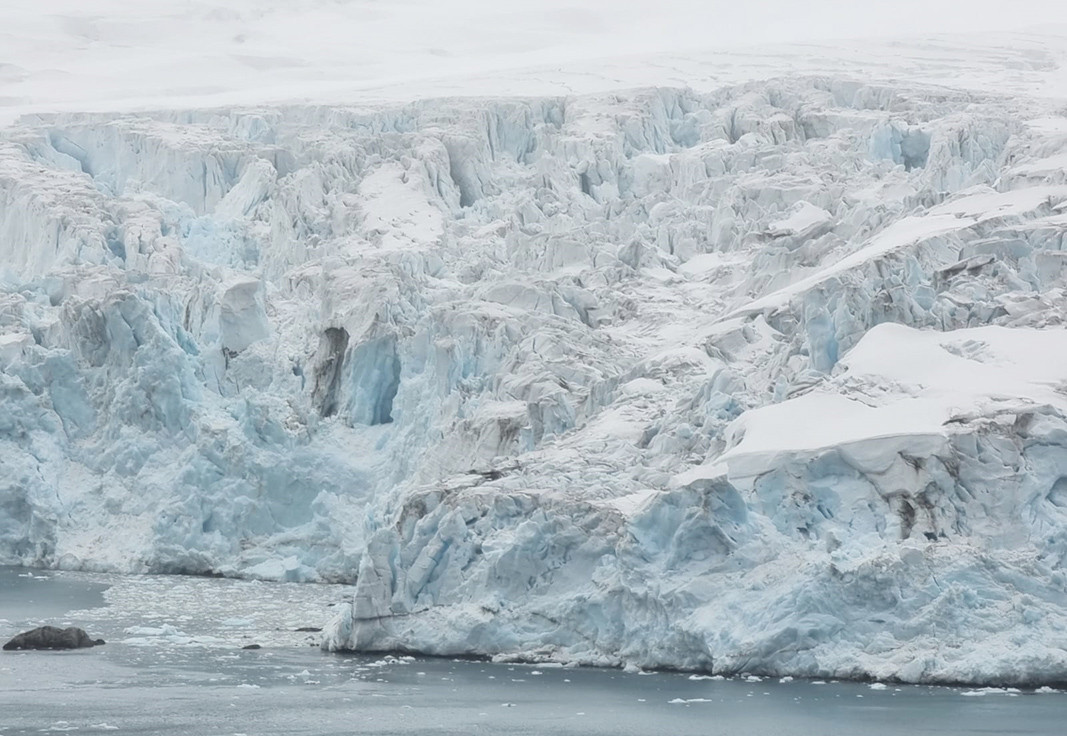 4
4
The participants in the 32nd Bulgarian Antarctic expedition have reached Livingstone Island, and their principal aim, parallel with their scientific projects, is to build a new laboratory block. One of them is Petar Sapundjiev, who has a PhD in electronics, and who has been an engineer at the Bulgarian Antarctic base for five years.
An avid climber, Petar Sapundjiev spends a lot of his time up in the mountains. He found about the work of the Bulgarian Antarctic Institute while he was working on a measuring device intended for the base on the ice continent. What has kept him coming back to Antarctica is “the wonder, the awe and the magic of the place”.
“Anyone setting foot there for the first time is enthralled by the unique nature, and experiences it in a different way,” the researcher says. “The first time is usually more emotional. Professionally, as a field of study, Antarctica is really exciting. As an engineer at the base I work with the energy system, with scientific equipment. I started working with a group of scientists - people working in geophysics, people working with glaciers, and that was how several specific ideas took shape.”
“What has inspired me since childhood is the use of electronics as a means of doing something creative, of exploring – it is as if we are adding one more sense to the ones we have, one more way of getting to know the world around,” Dr. Sapundjiev says. “I work with electronic measuring equipment, I construct specific devices to perform specific functions and study specific parametres. Then we analyze the data, and they help us learn more about the processes and phenomena around us.”
During his current mission in Antarctica, Petar Sapundjiev is working on two projects. The first is connected with the study of solar energy on the territory of the base. “It will help us improve and optimize our solar power supplies so that the equipment we need for our research work can function,” he explains. The solar system will monitor the quantity of solar energy reaching a unit area, and at different angles. He expects the first data to be obtained in a year’s time. “When we know how much energy the system is getting we shall be able to determine its state mathematically, and will know how to optimize it so it can function on the dark days. During the Antarctic winter there are no more than 2-3 light hours a day,” Petar Sapundjiev says further.
The second project is connected with the movement of glaciers. “A system that is extremely delicate,” says the researcher. 
“Our base is surrounded by glaciers, and they react to any changes taking place in the world,” Petar Sapundjiev goes on to say. “All things are connected – not just climate change but a great many changes in nature which are like the links in a chain. That is why studying glaciers provides so much information about the local and the global processes. Glaciers are really impressive, powerful and awesome structures. It is my task to create an autonomous photographic system that will take pictures of parts of a glacier we have pre-selected every day, for years on end. When we get these shots we shall be able to apply different processing methods, and with time lapse, we shall be able to see how glaciers are moving.”
Based on the information obtained, the speed of movement can be calculated, how the different zones are moving relative to one another, and the relief of the glaciers.
Petar Sapundjiev adds that the speed and the melting of the glaciers reveal part of the puzzle of the mysteries of global changes:
“There is no doubt the glaciers are now melting, the question is to what an extent this is caused by human activity, to what an extent it is part of some sort of normal cyclicity of nature. A great deal of effort is now being invested in finding out the answers to these questions.”
And while scientists have been endeavouring to draw the global picture of the world we are living in with new challenges, threats, but also hope of a qualitative leap in many spheres of knowledge, the responsibility we each have is to act responsibly because even the tiniest encroachment on nature can be multiplied a million-fold.
More:
Reporting from Antarctica by Marina Velikova, Horizont programme, BNR
Text by Diana Tsankova
Translated and posted by Milena Daynova
Photos: Marina Velikova, BTA
Who said Bulgarians were grumpy pessimists? Take a stroll through Sofia's Christmas bazaars and meet the cheerful crowd. The festive decorations, music, merry-go-rounds and stalls overflowing with treats and handmade souvenirs can make the gloomiest..
Bulgarian studies are highly valued at the Bogdan Khmelnitsky State Pedagogical University in the Ukrainian city of Melitopol. So it comes as no surprise that the university is hosting the latest edition of the International Bulgarian Studies Readings,..
"You say you are Bulgarian, but you do not know Bulgarian" – this reproach from officials in Bulgaria has been faced by quite a few by our compatriots from the historical Bulgarian communities around the world. One of them is Bledar Alterziu from..
The village of Zmeyovo near the town of Stara Zagora is celebrating today, December 21, its traditional Festival of Pelin Wine. According to an..
Each piece evokes warmth and nostalgia because each is handmade and unique. The silvery reflections on the glass baubles take us back to childhood, when..
The making of knitted products is a traditional craft that deserves a revival and a new life, believes Alexandrina Pandurska, known for her numerous..

+359 2 9336 661
